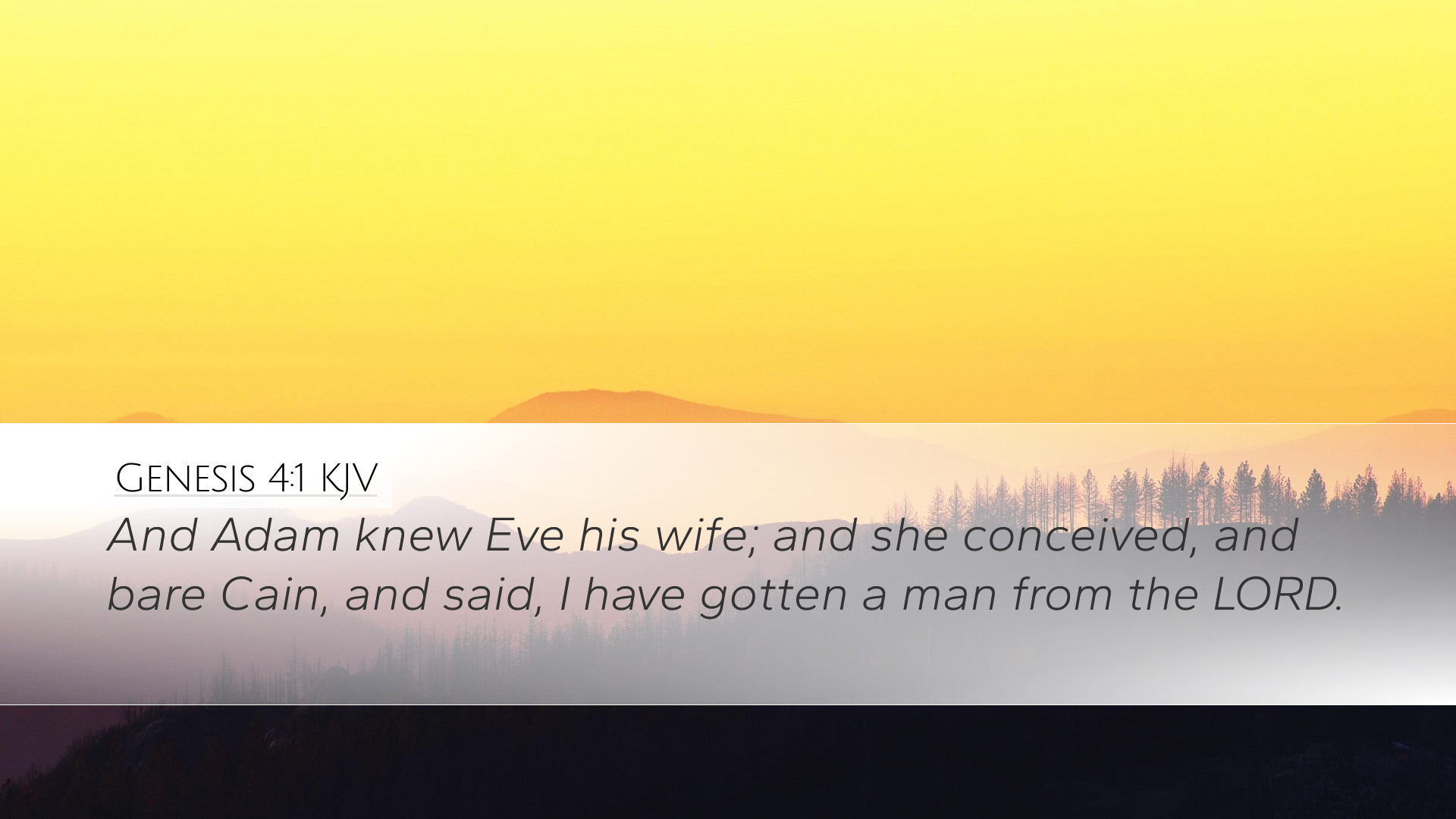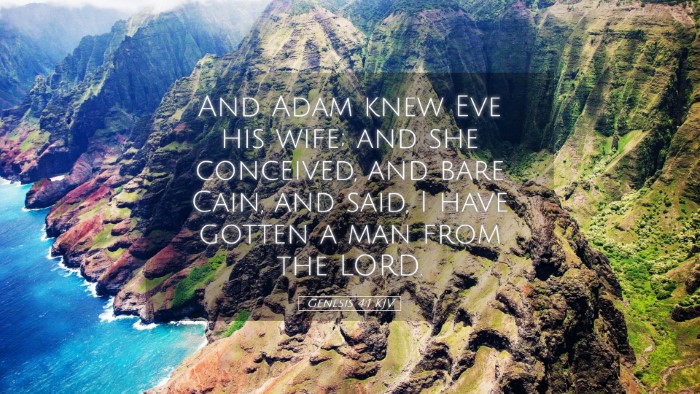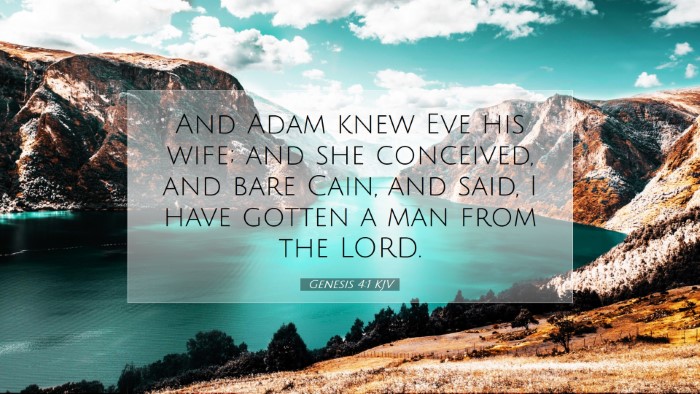Commentary on Genesis 4:1
Verse: "And Adam knew Eve his wife; and she conceived, and bare Cain, and said, I have gotten a man from the LORD."
Introduction
The verse Genesis 4:1 presents a significant moment in biblical history, marking the birth of Cain, the firstborn son of Adam and Eve. This moment is rich with theological implications and insights into the nature of humanity, sin, and divine providence. Various public domain commentaries shed light on these aspects, providing a multifaceted understanding of the text.
Historical and Theological Context
This verse is pivotal as it transitions from the paradise of Eden into the human experience of labor, struggle, and procreation. Adam and Eve's union is highlighted, showcasing the divine institution of marriage and family. The act of knowing suggests an intimate bond, reflecting both physical and emotional dimensions of this relationship.
Matthew Henry's Commentary: Henry emphasizes the significance of the phrase "knew his wife," which he interprets as a deep, intimate relationship. He posits that this union is ordained by God and essential for fulfilling His command to be fruitful and multiply.
Albert Barnes' Notes: Barnes focuses on the expression "I have gotten a man from the LORD." He notes that Eve recognizes God's role in the birth of Cain, indicating a direct acknowledgment of divine involvement in human affairs. This reflects her understanding of God's promise made in Genesis 3:15 about the seed of the woman bruising the serpent's head.
Adam Clarke's Commentary: Clarke elaborates on the interpretation of "a man from the LORD." He suggests that Eve's statement could imply that she believed Cain was the fulfillment of the messianic promise, viewing her firstborn with high expectations regarding his future role in humanity’s redemption.
The Nature of Cain's Birth
The birth of Cain introduces themes of hope and expectation, but it also sets the stage for future conflict. Although Cain is presented as a gift from God, his story takes a tragic turn, illustrating the complexities of human nature in a fallen world.
The Role of Expectation: Eve’s proclamation demonstrates a common human tendency to project hope and aspiration onto the next generation. Both Henry and Barnes argue that this reflects the age-old desire for fulfillment in one's offspring.
- Spiritual Significance: The birth of a child is often seen as a new beginning. Eve views Cain as a divinely appointed gift, symbolizing hope amidst the looming curse of sin.
- The Dynamics of Human Relationships: This verse also underscores the importance of family bonds, illustrating how deep relationships can lead to both creation and destruction, as subsequent narratives reveal.
Cain and Abel: A Broader Perspective
The verse foreshadows the conflict that will arise between Cain and his brother Abel. As both brothers mature, their differing paths will underscore key theological themes regarding sacrifice, acceptance, and divine favor.
Matthew Henry observes: "Cain was a tiller of the ground," which highlights the significance of diligent work but ultimately sets the stage for envy and conflict when God favors Abel's offering.
Albert Barnes comments: The narrative reveals that Cain's agricultural endeavors were met with divine indifference compared to Abel's pastoral offerings. This sets a paradigm for understanding divine acceptance and the nature of sin and rejection.
The Message for Today’s Followers
Theological reflection on Genesis 4:1 encourages contemporary believers to consider the implications of family, identity, and divine purpose. It challenges us to examine our expectations in the light of God's will and the importance of humility in our relationships.
- Understanding Human Nature: Cain's birth invites readers to reflect on the dichotomy of potential for both good and evil within humanity, a theme recurrent throughout scripture.
- The Call to Relationship: This passage emphasizes the importance of relationships, both vertical with God and horizontal with others, which are central to the Christian faith.
- Hope amidst Struggle: Just as Eve experienced hope in her son, Christians are reminded that even in a world marked by strife, hope can be found in God's plans.
Conclusion
Genesis 4:1 is more than a historical account; it is a rich theological text that invites deep reflection on the nature of life, family, and divine providence. By combining insights from public domain commentaries, we gain a layered understanding that challenges and inspires us as followers of Christ.
The legacy of Cain, while fraught with difficulties, reminds us of our choices and their spiritual implications. As we strive to live faithfully, we can take comfort in knowing that God's purposes prevail even amidst human failure.


